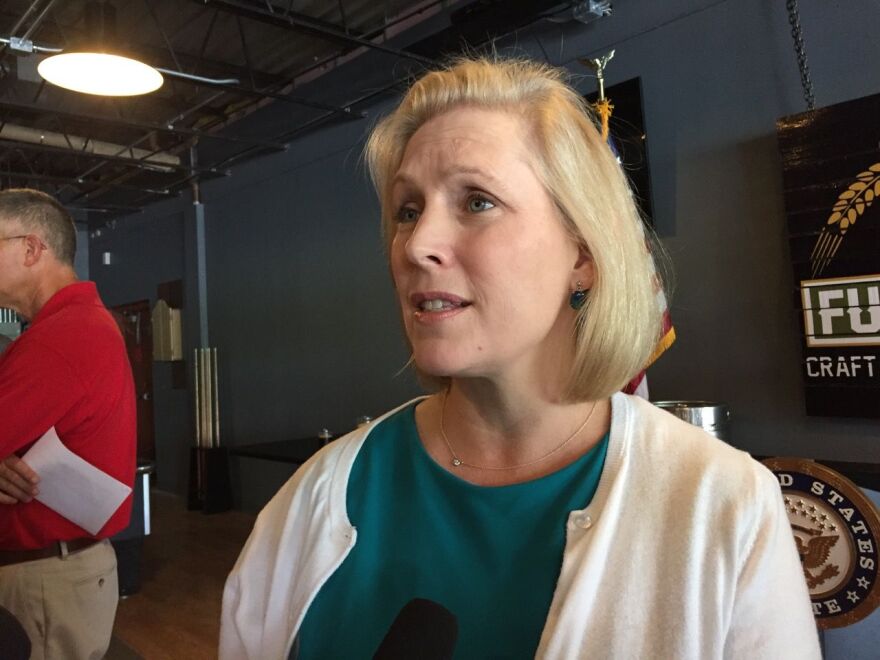Sen. Kirsten Gillibrand (D-NY) is promoting legislation that would expand access to Pell grants for short-term job training programs. The federal subsidy for students to go to college currently can be used for 15-week job skills training. But Gillibrand said that does not help people who cannot go back to school full-time.
"Let's say you have someone working at one of your local manufacturers and they realize they can get a better paying job if they take a training course to somehow advance their skills at the local community college," Gillibrand said. "This would now be eligible for them to take a six-week course, maybe at night, to give them the skill they need to get a better job. It's really helpful for part-time workers for low-income workers."
The legislation also requires training programs teach skills that workers specifically need. Gillibrand said that would be helpful for the manufacturing sector. Some upstate manufacturers say they cannot find enough skilled workers to fill job openings, while other manufacturing jobs are being eliminated because of automation.
"If they take a computer course or a cyber course or an advanced manufacturing course, they then will be able to manage the machinery that runs the new automation," Gillibrand said. "That's the kind of type of immediate job training that would be necessary to get the next job that's available."
The legislation could be attached to the Higher Education Act reauthorization, which is under consideration this year. There is no official cost estimate but it is expected to increase spending to the Pell grant program.
Trump's infrastructure plan
Gillibrand said President Donald Trump's $1.5 trillion infrastructure plan is not helpful or well-thought-out. The proposal takes money from the federal government's normal infrastructure funding streams, like the transportation bill, and commits $200 billion to an infrastructure fund over 10 years. But to access that money, local and state government would be required to invest in 80 percent of the costs of the projects.
"Only wealthy communities are going to be able to do this, first of all," Gillibrand said. "Second of all, only communities that are able to raise taxes are going to be able to use this money. If you have to pay 80-20, and your local government is paying 80 percent of any infrastructure project, it's really expensive and it means they could have done it without the federal money, most likely."
Gillibrand said New York State has a great need for infrastructure projects like high speed rail and rural broadband. New York Senator Charles Schumer also said Trump's plan falls short on all fronts.








